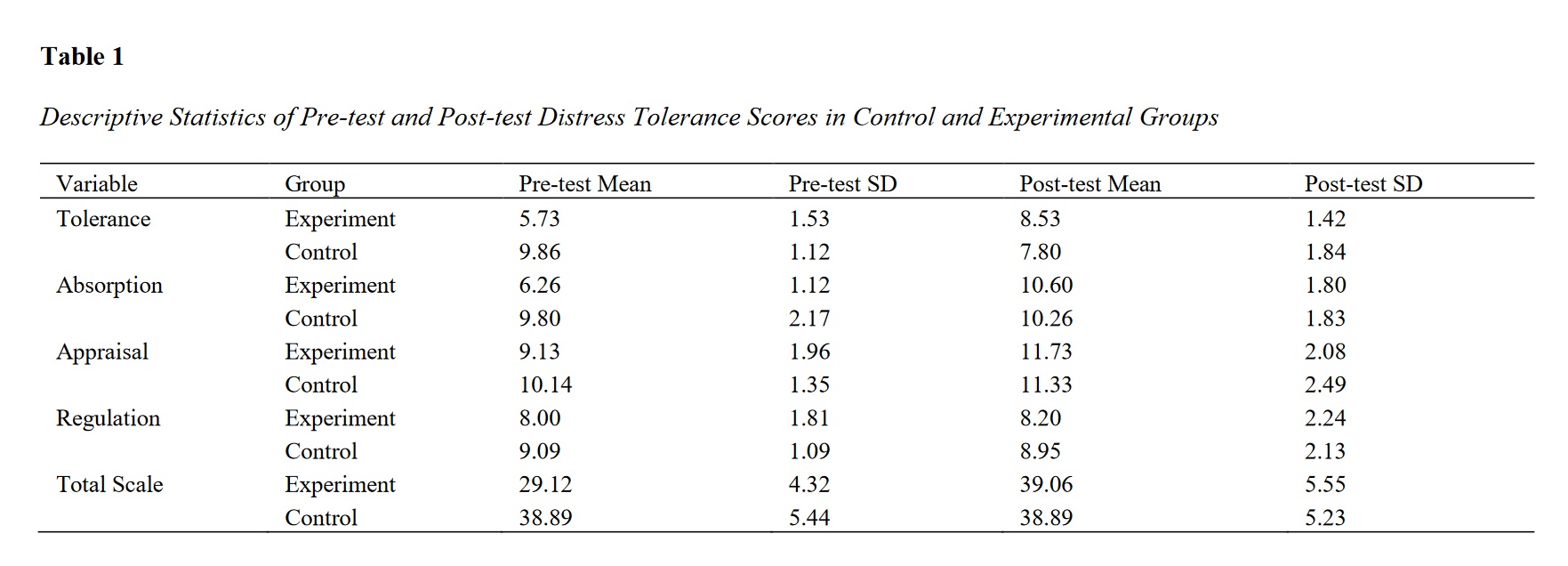The Effectiveness of Cognitive-Behavioral Therapy on Psychological Distress in Divorced Women
Keywords:
Cognitive-Behavioral Therapy, Psychological Distress, Divorce, WomenAbstract
Objective: Divorce can have multiple psychological consequences for divorced women. The present research was conducted to investigate the effectiveness of cognitive-behavioral therapy on psychological distress in divorced women.
Methods and Materials: The research method was a quasi-experimental design with pre-test and post-test with a control group and random assignment. The sample consisted of 30 divorced women from welfare counseling centers in areas 1 and 2 of Tehran, who were selected through convenience sampling and randomly assigned to two groups: experimental (15 individuals) and control (15 individuals). The experimental group participated in 12 sessions of Heimberg and Becker's (2002) cognitive-behavioral therapy, while the control group received no intervention. The Distress Tolerance Questionnaire by Simons and Gaher (2005) was used for data collection. Descriptive statistics followed by multivariate covariance analysis and univariate covariance analysis and SPSS software version 22 were used for data analysis.
Findings: The results indicated that cognitive-behavioral therapy significantly increased psychological distress tolerance (F = 43.63, p < 0.01) in divorced women.
Conclusion: Therefore, cognitive-behavioral therapy was effective in increasing psychological distress tolerance among divorced women and is also beneficial in enhancing their mental health and aiding in the improvement of their living conditions.
Downloads

Downloads
Additional Files
Published
Issue
Section
License
Copyright (c) 2024 Mahrokh Sadat Rasti (Author); Akbar Mohammadi (Corresponding Author)

This work is licensed under a Creative Commons Attribution-NonCommercial 4.0 International License.














